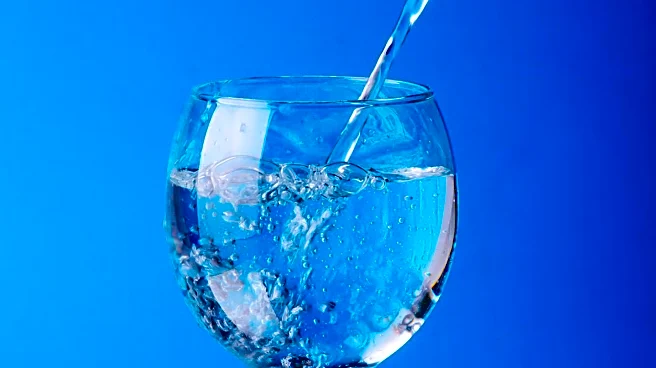What's Happening?
A recent study published in the Journal of Applied Physiology highlights the impact of hydration on stress and anxiety levels. Researchers at Liverpool John Moores University conducted an experiment involving 62 participants, divided into groups based on their daily fluid intake. The study found that individuals with lower fluid intake experienced higher levels of cortisol, a stress hormone, during stress tests compared to those who were well-hydrated. This suggests that proper hydration may mitigate stress responses, potentially influencing long-term health outcomes.
Why It's Important?
The findings underscore the importance of hydration in managing stress and anxiety, which are prevalent issues in modern society. Elevated cortisol levels, associated with dehydration, can lead to increased risks of heart disease, kidney problems, and diabetes. By maintaining adequate hydration, individuals may reduce their stress response, promoting better mental and physical health. This research could influence public health recommendations and encourage individuals to monitor their fluid intake as part of a holistic approach to wellness.
What's Next?
The study opens avenues for further research into the relationship between hydration and mental health. Healthcare providers might consider advising patients on hydration as part of stress management strategies. Additionally, public health campaigns could emphasize the benefits of adequate fluid intake, potentially leading to changes in dietary guidelines. As awareness grows, individuals may adopt more mindful hydration practices, contributing to improved overall health outcomes.
Beyond the Headlines
The study also highlights the interconnectedness of physiological systems, where hydration impacts not only physical health but also mental well-being. This could lead to a broader understanding of how lifestyle factors influence stress and anxiety, encouraging a more integrated approach to health. The cultural shift towards prioritizing hydration could also impact industries related to health and wellness, including the beverage and fitness sectors.








